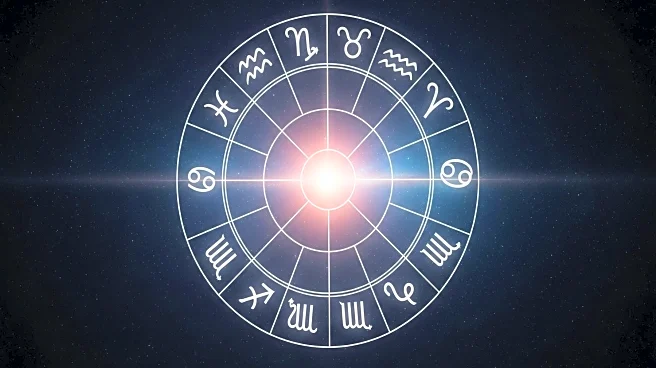What's Happening?
Netflix has launched a new astrology-themed hub on its platform, offering curated playlists based on zodiac signs. These playlists feature show and movie recommendations that align with the character traits and themes associated with each sign. For example, Sagittarians are recommended action and adventure titles like 'Lost' and 'Fast & Furious,' while Scorpios receive mystery-themed suggestions such as 'Dept. Q' and 'Knives Out.' The hub aims to provide a personalized viewing experience, allowing users to explore content that resonates with their astrological profiles. As each zodiac season approaches, Netflix plans to release detailed recommendation lists on its Tudum page, enhancing user engagement with tailored content.
Why It's Important?
The introduction of Netflix's Zodiac Hub represents a novel approach to content personalization, leveraging astrology to engage users in a unique way. This initiative could enhance user satisfaction by offering tailored recommendations that align with individual interests and preferences. By tapping into the popularity of astrology, Netflix may attract new subscribers who are intrigued by the concept of zodiac-based content curation. Additionally, this strategy could increase viewer retention, as users are more likely to explore and enjoy content that resonates with their astrological profiles. Overall, the Zodiac Hub could strengthen Netflix's competitive edge in the streaming market by offering a distinctive and personalized viewing experience.
Beyond the Headlines
The Zodiac Hub's reliance on astrology raises interesting questions about the intersection of entertainment and personal belief systems. While astrology is widely popular, it also has its skeptics. Netflix's approach may spark discussions about the role of personal beliefs in shaping media consumption and the ethical implications of using such beliefs for commercial purposes. Furthermore, the hub's success could inspire other streaming platforms to explore similar personalization strategies, potentially leading to a broader trend of belief-based content curation in the industry.









